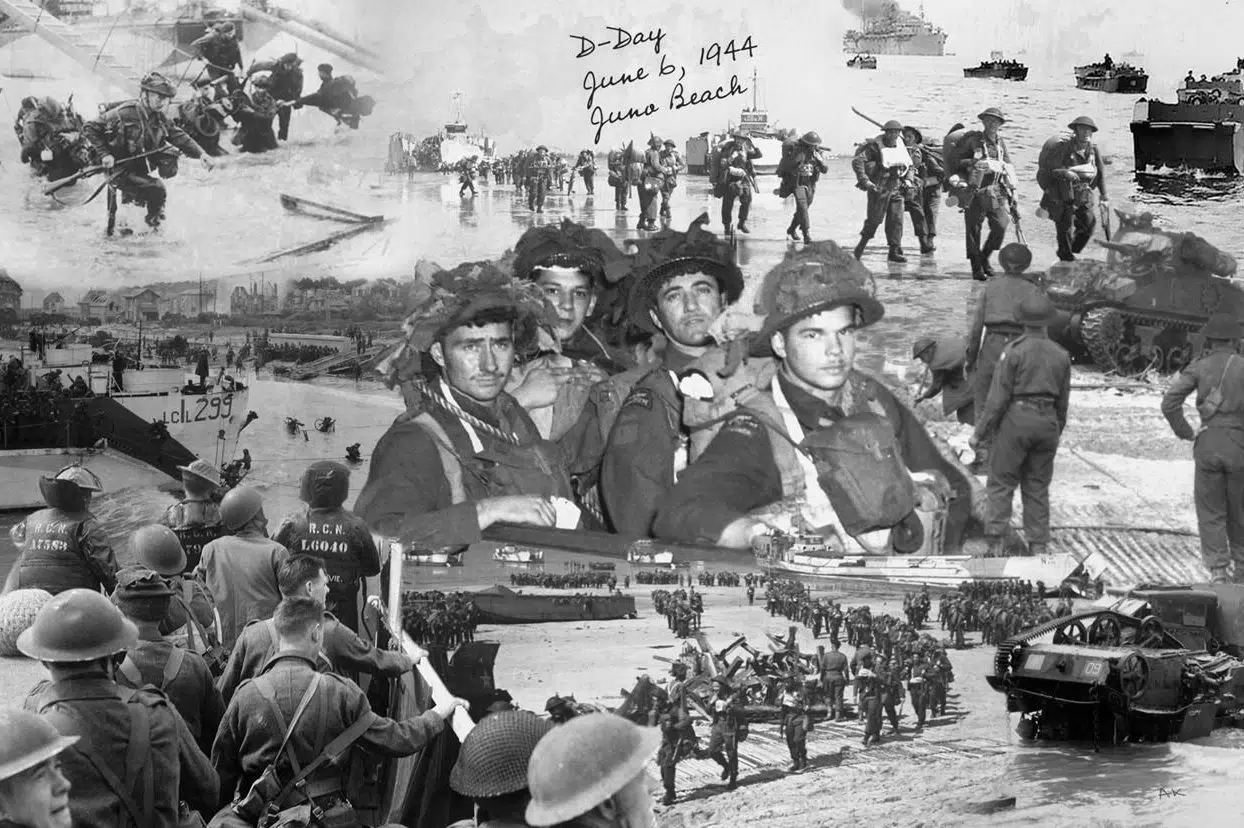Hundreds of Canadians are about to receive proof of their personal, largely unknown links to one of the defining events of the 20th century.
An organization dedicated to commemorating Canada’s role in the Second World War will be mailing out postcards to the former homes of soldiers who died in the first five days of the pivotal D-Day campaign, which helped secure victory for allied troops against Germany.
The postcards, prepared and mailed by the Juno Beach Centre Association, will inform present-day residents about the soldier who enlisted from their address decades before. The messages will contain basic biographical details, the soldier’s rank and military affiliation, and information about when and where he was killed.
The commemorative project, meant to honour the 75th anniversary of the D-Day campaign, has Toronto resident Paula Monahan eagerly checking her mailbox for the document she says will serve as a tangible link to an important yet tragic part of Canada’s past.
“There’s something very solemn about the fact that you live in a house (from where) a 22-year-old went off to battle and never came back,” Monahan said in a telephone interview. “We will certainly cherish the postcard when we get it.”
The 22-year-old in question was Rifleman Thomas Joseph Pierce, who listed Monahan’s west-Toronto address on the attestation papers he completed upon joining the armed forces.
Pierce, son of Thomas and Mary Pierce, served in the second battalion of the Queen’s Own Rifles of Canada prior to his death on D-Day.
He was one of the estimated 156,000 British, American and Canadian troops to storm a 75-kilometre stretch of beach in northern France beginning on June 6, 1944. The 14,000 Canadian soldiers were assigned to an area dubbed Juno Beach, where they were eventually tasked with reaching a local rail line and beating back the assault from German troops.
Mike Bechthold, executive director of the Juno Beach Centre Association, said the 76-day campaign exacted a high death toll from all nations involved, with 903 Canadians perishing in the first five days.
Bechthold said those tasked with preparing the postcards mined attestation records from those soldiers, which are preserved in a combination of government archives and online genealogy sites.
He said more than half of the addresses listed on those documents are no longer valid, replaced by new developments or rendered obsolete by changing geographical boundaries. But he said valid addresses were found in nearly 400 cases, and residents at those homes should expect to receive their postcards over the next week or two.
Bechthold — a historian by trade — said the postcards should be seen as the letters that the slain soldiers “would have sent home if they could have.” He said he hopes they will also help Canadians to connect the dots between the increasingly distant past and the lives they lead today.
Monahan, for her part, intends to enlist her military buff brother to do some research and learn what he can about Pierce.
Meanwhile Richard Sawyers, who expects to receive a postcard at the midtown Toronto seafood shop where he now serves as manager, is eager to take on the research himself.
Lance Sgt. George Wilfred Morrison of the Queen’s Own Rifles, who died on D-Day at age 27, enlisted from the address where Sawyers’ workplace now stands.
“I’ll be straight on Google to find out more information, see if I can track him down,” Sawyers said. “In Toronto everything’s always very new, so a wee bit of history about the place is always very nice.”
When the postcard arrives, Sawyers said he plans to display it in the shop window to try and spread the word about the soldier and his connection with the neighbourhood to customers.
For Bechthold, Sawyers’ plan fits perfectly with the aim of the postcard project.
“There’s history all around us, yet it’s almost like we walk around with blinders on,” he said. “The people living in these houses … have no concept of what happened there. This is an opportunity to sort of open their eyes and get them attuned to a different wavelength.”
Michelle McQuigge , The Canadian Press







